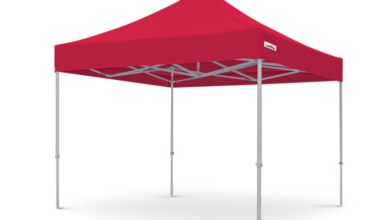Behind the Scenes: The Mechanics of Professional Hauling Services

Professional hauling services are the unsung heroes of many industries, ensuring the smooth movement of goods, materials, and waste from one location to another. While their work may seem straightforward, the mechanics behind these services are intricate and multifaceted.
In this comprehensive guide, we delve into the inner workings of professional hauling, exploring the processes, equipment, safety measures, and environmental considerations that drive this essential industry forward.
Understanding Professional Hauling Services
Professional hauling services encompass a wide range of transportation tasks, each requiring careful planning and execution. Whether it’s transporting construction materials to a job site or hauling away debris after a demolition project, these services play a crucial role in keeping businesses running smoothly. Here’s a detailed look at the key components involved:
1. Logistics Planning
Logistics planning is the foundation of successful hauling operations. It involves meticulous coordination and optimization of resources to ensure timely and cost-effective transportation. Key aspects of logistics planning include:
- Route optimization: Analyzing factors such as traffic patterns, road conditions, and distance to determine the most efficient routes for each trip.
- Load scheduling: Coordinating pickups and deliveries to maximize truck capacity and minimize empty miles.
- Permit acquisition: Obtaining the necessary permits for transporting oversized or hazardous materials, ensuring compliance with local regulations.
2. Fleet Management
A well-maintained fleet is essential for delivering reliable hauling services. Fleet management encompasses various tasks aimed at maximizing the efficiency and safety of vehicles. This includes:
- Vehicle maintenance: Implementing regular inspection and maintenance schedules to keep trucks and trailers in optimal condition, reducing the risk of breakdowns and downtime.
- Fleet tracking: Utilizing advanced GPS technology to monitor vehicle locations in real-time, optimize routes, and provide accurate delivery estimates to customers.
- Compliance with regulations: Staying up-to-date with transportation laws and regulations, including weight limits, hours of service, and driver qualifications, to avoid penalties and ensure safety on the road.
3. Specialized Equipment
Professional moving company rely on a diverse range of equipment to handle different types of cargo efficiently. From heavy machinery to delicate materials, having the right tools for the job is essential. Common types of specialized equipment used in hauling services include:
- Dump trucks: Designed for transporting loose materials such as gravel, sand, and construction debris, dump trucks come in various sizes and configurations to accommodate different payloads.
- Flatbed trailers: Versatile and adaptable, flatbed trailers are ideal for transporting oversized or irregularly shaped cargo, including machinery, lumber, and steel beams.
- Roll-off containers: Used for temporary storage and transportation of waste and recyclable materials, roll-off containers are available in various sizes to suit different project requirements.
4. Safety Protocols
Safety is paramount in the hauling industry, where large vehicles and heavy loads pose inherent risks to drivers, workers, and other road users. Implementing robust safety protocols is essential for preventing accidents and ensuring compliance with regulatory standards. Key safety measures include:
- Load securement: Properly securing cargo using straps, chains, or other fastening devices to prevent shifting or spillage during transit, reducing the risk of accidents and injuries.
- Personal protective equipment (PPE): Providing drivers and crew members with appropriate safety gear, such as hard hats, gloves, high-visibility vests, and steel-toed boots, to protect against workplace hazards.
- Emergency procedures: Establishing clear protocols for responding to accidents, spills, or mechanical failures, including evacuation procedures, emergency contacts, and first aid protocols, to minimize the impact of unforeseen events.
Read also: Cleanliness is Key: The Impact of Professional Airbnb Cleaning Services on Reviews
5. Environmental Considerations
In today’s environmentally conscious world, professional haulers are increasingly focused on minimizing their ecological footprint and promoting sustainable practices. From waste reduction to emissions reduction, environmental considerations are shaping the future of the hauling industry. Key initiatives include:
- Waste management: Implementing strategies for recycling, composting, and proper disposal of waste materials, diverting reusable resources from landfills and reducing environmental pollution.
- Emission reduction: Investing in fuel-efficient vehicles, alternative fuels, and emission control technologies to minimize carbon emissions and mitigate the impact of transportation on air quality and climate change.
- Regulatory compliance: Staying informed about environmental regulations and standards, including emissions limits, waste management guidelines, and pollution prevention measures, to ensure compliance and avoid legal liabilities.
Conclusion
Professional hauling services are a critical component of modern commerce, facilitating the movement of goods, materials, and waste across various industries. By understanding the mechanics behind these services, businesses can optimize their operations, improve efficiency, and mitigate risks. From meticulous logistics planning to state-of-the-art equipment and rigorous safety protocols, every aspect of professional hauling contributes to the seamless transportation of goods and the sustainable development of communities. As the industry continues to evolve, embracing innovation and embracing environmental stewardship will be key to shaping a more resilient and responsible future for professional hauling services.






